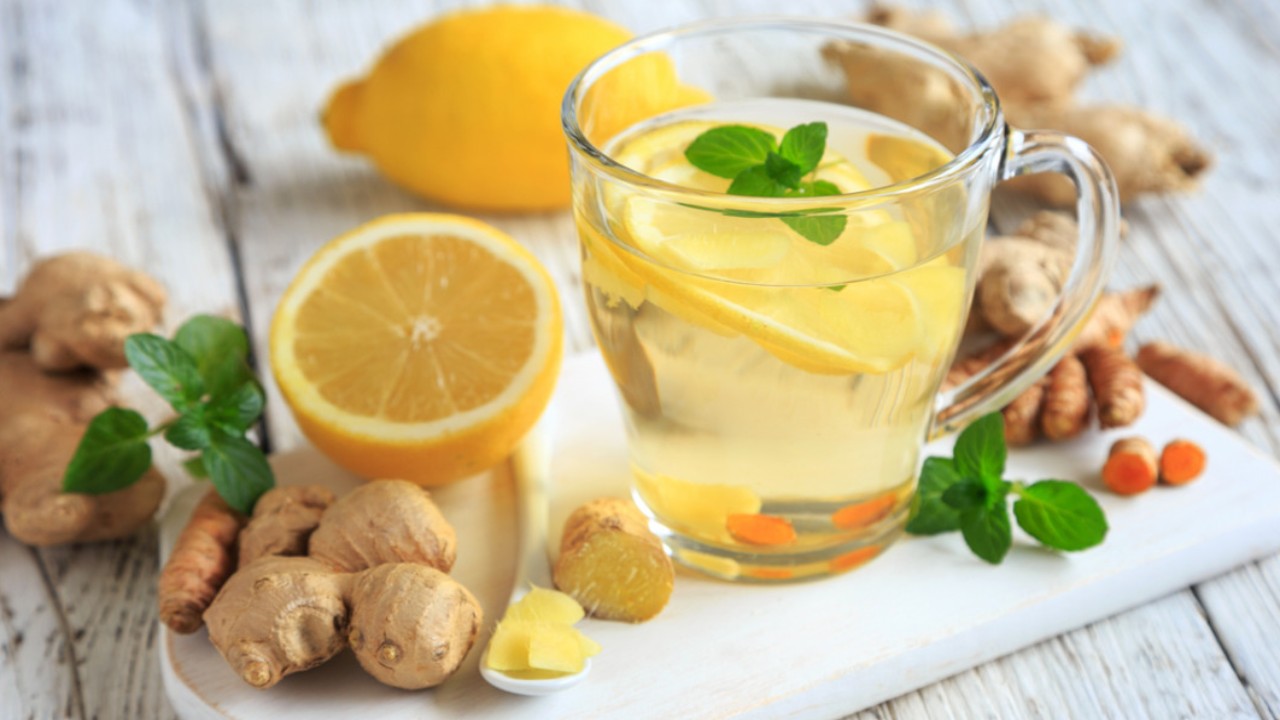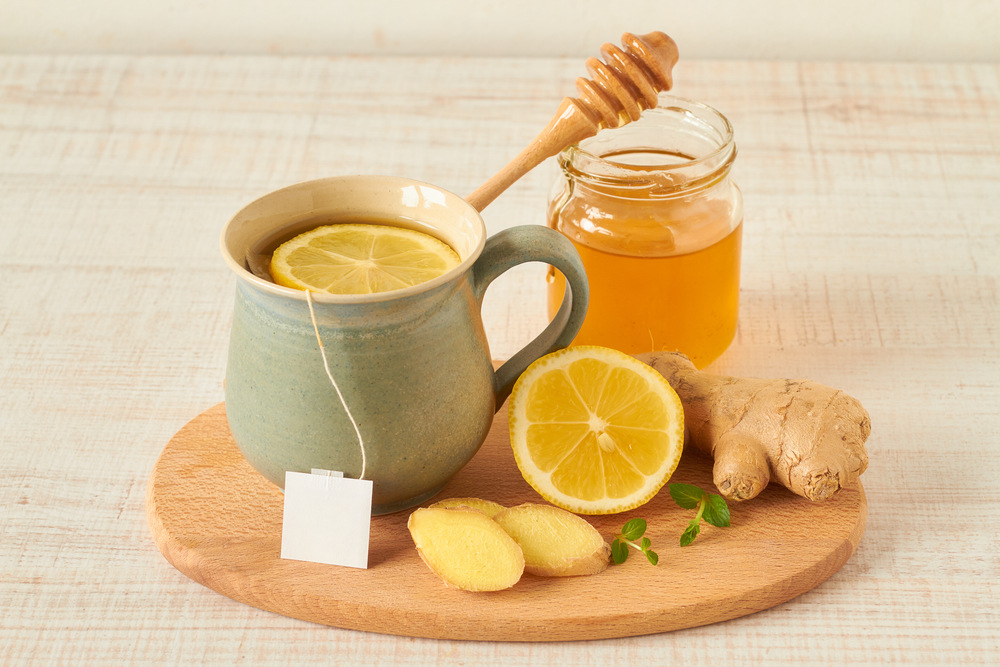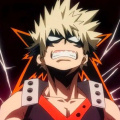The Lemon Ginger Tea Benefits to Zest Up Your Health And Wellness
The lemon ginger tea benefits range from better digestive health, heart health, and immune strength to glowing skin and hair. Let us explore all of them!

Sip your way to wellness by reaping the innumerable lemon ginger tea benefits – a revitalizing herbal tonic that is equally tasty and extremely easy to prepare. A cup of lemon ginger tea can help you transform your health, it’s mostly consumed as a bedtime tea for its relaxing and soothing effects on the mind and body, thus helping one to fall asleep faster. One can also consume it during the day as a healthy substitute for caffeinated drinks for relieving stress.
The two ingredients in this tea, lemon and ginger have been used for medicinal purposes for centuries. This is because both lemon and ginger are a rich source of antioxidants and anti-inflammatory properties. You may also add some honey to it for added taste and benefits. Therefore, let us delve further into this topic to help you make an informed decision.
What Does Lemon Ginger Tea Do for You?
Lemon ginger tea is a very tasty cup of tea that has the capability to boost your health if consumed regularly for a considerable period of time. On the one hand, ginger has been scientifically proven to relieve digestive issues, reduce nausea, and possess anti-inflammatory properties that may alleviate discomfort. On the other, lemon adds a high dose of vitamin C, and flavinoid boosting the immune system and supporting detoxification. The combination of these two beneficial ingredients has the potential to improve overall health by promoting weight management and increasing metabolism. Antioxidants in both lemon and ginger also contribute to improved skin health while the tea's caffeine-free nature provides an energy boost without jitters. The calming aroma and potential stress-reducing effects make it a soothing beverage. However, it's important to remember that individual responses may vary, and lemon ginger tea should only be an additional part of a diet focused on a balanced lifestyle but not replace professional medical advice or treatment.
13 Health Benefits of Drinking Lemon Ginger Tea
Let us explore some of the remarkable lemon ginger tea benefits that will enhance our well-being.
1. Relieves Indigestion:
The two ingredients ginger and lemon of ginger lemon tea have separate benefits to offer to your digestive health. Lemon contains a chemical compound called limonene which is known to aid better digestion by increasing bile influx, neutralizing acidity caused by stomach acids and thus relieving the digestive tract from indigestion (1). Ginger is also a well-known dietary component that has carminative effects relieving the stomach from flatulence. Additionally, it also enhances gastric motility which aids in faster gastric emptying (2). Therefore, drinking ginger lemon tea may help relieve indigestion.
2. Alleviates Nausea and Vomiting:
Pregnancy-related nausea and vomiting are the most common incidences of nausea affecting about 80% of women in the world. Thus, the effects of various medicines as well as natural ingredients in treating nausea in pregnant women have been extensively researched. These results have indicated that 1 gram ginger per day is effective in alleviating nausea and vomiting during pregnancy with no significant side effects due to the presence of a component called gingerol which imparts anti-inflammatory properties. Ginger is a great solution in cases of motion sickness, surgery, chemotherapy, other diseases, or injury-related nausea as well (2). Therefore, lemon ginger tea may help in improving vomiting symptoms and provide an anti-nausea effect.
3. Boosts Immune Strength:
Lemon ginger tea’s primary ingredient, fresh lemon is a rich source of vitamin C, which plays a crucial role in enhancing the immune system. This vitamin aids the body in generating healthy amounts of immune cells or white blood cells responsible for combating infections and illnesses. Consistently consuming lemon and ginger tea may contribute to rapid wound healing, enhancing antibody levels for rapid microbial killing, and acting as an antioxidant that lowers host cell deaths (3).
4. Reduces Heart Disease Risk:
The high vitamin C content in lemon promotes improved blood flow within blood vessels, which is important to maintain blood pressure, thus maintaining heart health. It is also proven to prevent stiffness of arteries and have an improved effect on lipid profiles which helps in preventing heart blockages (4). Ginger, known for its antioxidant, anti-inflammatory, and anti-platelet properties, possesses a hypolipidemic effect that contributes to reducing risks associated with heart health. Moreover, ginger is also known to support enhanced blood circulation and prevent blood clotting, thus helping in preserving the health of the heart (5). Therefore, including this herbal medicine in your daily routine might lower the risk of developing certain cardiovascular conditions.
5. Prevents Nasal Congestion:
The steam released from warm lemon-ginger tea serves to alleviate nasal congestion by opening up the nasal passages. This can be especially helpful during colder months, as warm liquids not only prevent congestion but also provide relief from sore throats. While the effects are temporary, lemon ginger tea's steam might provide relief from conditions like sinusitis and breathing difficulties linked to nasal congestion by loosening nasal mucus (6).
6. Cognitive Enhancement And Mood Regulation:
Ginger is believed to enhance muscular relaxation and cognitive function, potentially aiding concentration, mental focus, and better brain health (7). Although the cognitive benefits of ginger are mostly observed, concrete evidence is still lacking. Additionally, ginger's impact on mood swings regulation might be another positive aspect to explore. Another study done on mice showed that inhaling vapor from lemon oil contributed to inducing a state of relaxation (8).
7. Promotes Hydration:
Lemon-ginger tea, when consumed with water, aids in maintaining proper hydration levels. This is crucial for the optimal functioning and health of vital organs like the kidneys, heart, and digestive system.
According to Bella Carvosso, a Biomedical Scientist and Nutritionist, “The ideal amount of lemon ginger tea to consume daily can vary from person to person, but generally, it's safe and beneficial to drink 1 to 3 cups of lemon ginger tea per day. Here are some considerations:
- Tolerance: Some people may be more sensitive to ginger or citrus flavors than others. Start with a smaller amount, like one cup per day, and gradually increase to see how your body responds.
- Health Goals: If you're drinking lemon ginger tea for its potential health benefits, such as digestive aid or immune support, 1-3 cups per day can provide those benefits without excessive consumption.
- Time of Day: Lemon ginger tea is often consumed in the morning or before meals to aid digestion. If this is your goal, drinking it in moderation around those times can be helpful.
- Caffeine Content: Lemon ginger tea is typically caffeine-free, but some blends may contain black or green tea, which does have caffeine. If you're sensitive to caffeine, choose caffeine-free varieties or drink it earlier in the day to avoid sleep disturbances.
- Personal Preference: Ultimately, the amount you consume should align with your personal preference and how it fits into your overall diet and fluid intake.”
8. Supports Liver Health:
The presence of citric acid in lemons contributes to liver detoxification as it activates liver enzymes and certain other molecules important in that pathway. It is also known to aid in the regeneration of certain pathological changes in the liver (8). Even ginger plays an important role in combating liver diseases like liver steatosis due to its anti-inflammatory properties (9). Incorporating lemon-ginger tea into your diet may aid in eliminating toxins and detoxifying the body, thus promoting better liver health.
9. Improves Skin Health:
Lemon-ginger tea is a rich source of essential vitamins, minerals, and antioxidants that contribute to maintaining healthy skin. Ginger's antibacterial properties play a role in combating skin infections and nourishing the skin (10). The Vitamin C in lemon is also known to offer higher cell renewal properties, brightening, anti-inflammatory, and anti-aging properties to the skin (3).
10. Hair Removal Effects:
Ginger’s effects on dermal cells have been studied in vivo which offers interesting results. It has been observed that ginger has pro-cell-killing effects on these. Therefore, lemon-ginger tea could also contribute to preventing unwanted body hair (11).
11. Dental Hygiene:
The antibacterial properties found in both lemon and ginger play a crucial role in averting the accumulation of plaque on teeth and along the gum line, which often leads to gum inflammation. Studies have also demonstrated the benefits of ginger in potentially reducing the risk of gum diseases, gingivitis, and oral cancer (12). Consuming lemon ginger tea may support the maintenance of strong and healthy gums and teeth.
12. Aids in Weight Management:
Firstly, the calories present in lemon and ginger tea are nearly zero if consumed without any sweeteners or additional ingredients. Secondly, ginger enhances the feeling of fullness and diminishes cravings (13). And thirdly, lemon improves insulin sensitivity and increases the breakdown of body fat content. Therefore, consuming lemon-ginger tea can boost metabolism, contributing to the reduction of diet-induced weight gain and maintaining a healthy body weight (14).
Bella Carvosso further says, “Lemon ginger tea is often associated with potential weight loss benefits, but it's essential to understand that any weight loss effects are typically modest and part of a broader healthy lifestyle. Here's how lemon ginger tea may be beneficial when consumed on an empty stomach:
- Metabolism Boost: Ginger has compounds that may help increase metabolism and promote fat burning. This effect is relatively small and varies from person to person.
- Appetite Suppression: Some individuals find that ginger can help reduce appetite, potentially leading to reduced calorie intake.
- Digestive Aid: Both lemon and ginger can support healthy digestion. Improved digestion can help prevent bloating and discomfort, which may indirectly support weight management.
- Hydration: Starting the day with a cup of lemon ginger tea can help with hydration, which is essential for overall health and can aid in controlling appetite.
However, it's crucial to note that lemon ginger tea alone is not a miracle weight loss solution.”
13. Diabetes Management:
Studies have proven that ginger has the potential to reduce glucose levels in the bloodstream, rendering it a favorable option for individuals dealing with diabetes (15). There also have been strong pieces of evidence that state that vitamin C supplement consumption has a positive effect on the sugar level and insulin resistance in patients with type 2 diabetes (16). Lemon ginger tea has the capacity to assist in diabetes management through the regulation of blood sugar levels and the prevention of post-meal sugar spikes.
What Is the Nutritional Profile of Lemon Ginger Tea?
A single 8-ounce portion of lemon ginger tea without caffeine or added sugars includes the following measurements:
- Calories: 0
- Total Fat: 0 grams
- Sodium: 0 milligrams
- Total carbohydrates: 0 grams
- Sugars: 0 grams
- Proteins: 0 grams
Additionally, ginger and lemon are packed with antioxidants, gingerol, and shogaol being the main antioxidants of ginger (17) and Vitamin C, and plant compounds called flavonoids are powerful antioxidants present in lemon (3).
These quantities might differ depending on the specific brand. One may also opt to add additional ingredients like milk, cream, or sweeteners to lemon ginger tea, which will alter the tea's nutritional composition.
How to Make Lemon Ginger Tea at Home

You may have come across lemon ginger tea bags on the shelves of your local supermarket. However, to gain a considerable amount of benefits from the same, it is advisable to prepare a homemade concoction of this tasty elixir. The preparation process is simple and delightful and here is a step-by-step guide on how to make it:
Ingredients:
- Fresh ginger root (about 1 inch or more, peeled and sliced)
- 2 lemon slices
- Honey or sweetener (optional)
- Water
Instructions:
- Start by bringing a cup of water to a boil. You can adjust the quantity based on how strong you want your tea to be.
- While the water is boiling, peel and slice the fresh ginger. You can adjust the amount of ginger based on your taste preferences. Around 1 inch of ginger is a good starting point.
- Cut the lemon in half and squeeze the juice from one half. You can adjust the amount of lemon juice based on your preference for tanginess.
- Place the ginger slices and lemon juice in a cup or teapot.
- Add the ginger and lemon to the teapot or cups of boiling water.
- Let the ginger and lemon steep in the hot water for about 5-10 minutes. This allows the flavors to infuse into the water.
Add Sweetener (optional): If desired, add some raw honey or your preferred sweetener to the tea for extra flavor. Stir well until the sweetener is dissolved.
Strain (optional): If you prefer your tea without ginger bits, you can strain the tea before drinking.
Your homemade lemon ginger tea is ready to be enjoyed. Sip it while it's warm and relish the soothing flavors and potential health benefits. The quantities of ginger, lemon, and sweetener can be adjusted according to your personal taste. Feel free to experiment with other spices like peppercorns, cinnamon sticks, etc. until you find the perfect balance that suits you best
Side Effects of Lemon Ginger Tea:
After discussing lemon ginger tea benefits, we must understand that anything may be harmful to the body if consumed excessively or in conjunction with certain medications. Here are some major side effects that may be caused by overconsumption of lemon ginger tea:
- Interaction With Blood Thinners: For individuals taking anticoagulant medications like Coumadin (warfarin), it's important to be aware that ginger contains salicylate, a natural compound that possesses blood-thinning properties. This is also relevant for individuals with bleeding disorders. Therefore, it's advisable to consult a medical professional before adding lemon ginger tea to your diet in such situations.
- Stomach Discomfort: Ingesting more than the daily recommended amount of ginger, which is 2 grams, may lead to stomach discomfort. It may be characterized by pain, burning, or cramping after drinking lemon-ginger tea. Therefore, if you experience any such symptoms, you should reduce the quantity of ginger in your infusion or consult a doctor if recovery is not immediate.
- Allergies: Although extremely rare, some people have been documented to be allergic to ginger. Therefore, if you are unsure of your allergies, consume very less amounts of ginger in the beginning slowly increasing the amounts as your body gets tolerant. Other than that, you may also get an allergy test done by a specialist to be certain.
- Added Sweeteners: Regular and higher amounts of additional sweetening to your lemon-ginger tea with ingredients such as honey or sugar, etc. could lead to health concerns. Therefore, be mindful of the amounts of added sweeteners in your drink. You may choose to add lower quantities of lemon and ginger to make it less spicy or tangy instead of adding extra sweetness.
Conclusion:
The myriad of lemon ginger tea benefits that we discussed in this article include better gut health, improved skin and hair, muscle pain relief, lower risk of cardiovascular diseases, enhanced immunity, better regulation of mood, etc. Therefore, including this tea in your regular diet, especially just before bedtime may show wondrous results. However, one must remember that while these potential benefits are promising, they should consume it in moderation and just as a complementary part of a balanced diet and a healthy lifestyle. Consultation with a healthcare professional is recommended before making significant dietary changes or relying solely on herbal remedies for health benefits.
ALSO READ: The Super Health Benefits And Effects of Cranberry Tea





 JOIN OUR WHATSAPP CHANNEL
JOIN OUR WHATSAPP CHANNEL



































































































